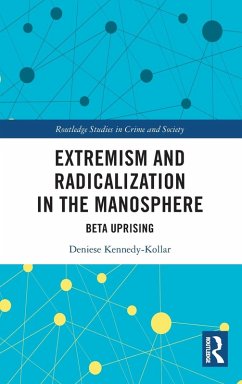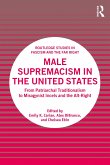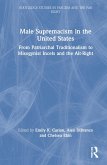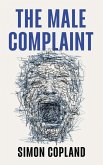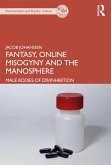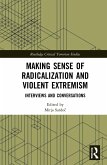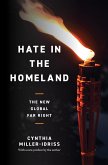This book presents an analysis of the male supremacist ideology of the internet-based subculture known as the manosphere and examines the process of radicalization to violent extremism that occurs within the group. The manosphere is the online subculture comprised of several distinct groups who share a basic gender ideology that is misogynistic and anti-feminist in the extreme. The manosphere celebrates a toxic hegemonic masculinity that encourages sexual violence and portrays violence as an understandable response to a feminized culture that denigrates manhood. Evidence has shown that several recent cases of murder, mass murder, and rape involved offenders who participated in this subculture prior to engaging in their crimes. Through the use of quotes gathered directly from the websites and message boards frequented by individuals within the subculture, this book offers an in-depth analysis of the ideology of the manosphere, and the common attitudes, values, and beliefs promoted within the various groups that comprise the subculture. It will also present a theoretical perspective that may shed light on what draws men to these groups and the processes by which they become radicalized to the far right and violent extremism. This book will be of interest to scholars and students in criminology, sociology, and political science, and others interested in examining the manifestation and effects of the manosphere on crime and criminal justice.
"In this outstanding and refreshing book, Dr. Deniese Kennedy-Kollar studies how men are drawn to radicalization through an online subculture based on a perverted view of manhood rooted in male supremacy. Her thesis fits well with our modern society that aims at equality for women and meritocracy. Our ideals and hopes are such that anyone can and should become who they want based on their potential, drive, and work. This threatens the subculture of male supremacists. Her theme is outlined in a fascinating book that uses key examples clearly demonstrating the accuracy of her work. I highly recommend this book to anyone who wants to understand this radicalization process. This is a must read for students of criminal justice/criminology, law enforcement, politicians, policy makers, and many others."
- John A. Eterno, Professor & Graduate Program Director, Molloy University
"Deniese Kennedy-Kollar in delightful prose takes us on a very interesting, intellectually enriching, and insightful journey through the manosphere. The book throughout is a tour de force explaining how this hegemonic masculine social space creates the motivational climate for its members to engage in rape, murder, and mass murder. This book is a must read for academics, students, criminal justice practitioners, and lay persons interested in understanding gender-based wars, misogyny, antifeminism, hegemonic masculinity, online radicalization and extremism, right wing terrorism, and social violence, with a view to identifying threat assessment and prevention opportunities."
- Christopher A.D. Charles, Professor of Political and Social Psychology, University of the West Indies
- John A. Eterno, Professor & Graduate Program Director, Molloy University
"Deniese Kennedy-Kollar in delightful prose takes us on a very interesting, intellectually enriching, and insightful journey through the manosphere. The book throughout is a tour de force explaining how this hegemonic masculine social space creates the motivational climate for its members to engage in rape, murder, and mass murder. This book is a must read for academics, students, criminal justice practitioners, and lay persons interested in understanding gender-based wars, misogyny, antifeminism, hegemonic masculinity, online radicalization and extremism, right wing terrorism, and social violence, with a view to identifying threat assessment and prevention opportunities."
- Christopher A.D. Charles, Professor of Political and Social Psychology, University of the West Indies

